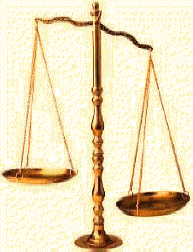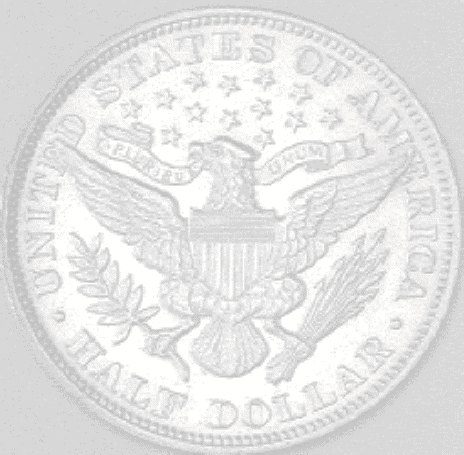
|
|
||
|
|
|
|
|
|
||

-16-
FOR BETTER OR WORSE:
Inflation
Paper "money" was not the
only problem: the gold and silver content in the coinage had been
reduced thus giving the illusion of rising prices. It is said that food
"tripled in cost" and that cotton "quadrupled in price," but in reality
people simply lost confidence in the ability of Congress to back the
value it declared its paper to be worth, and simply demanded more of it.
Wages never rose to meet the apparent price increases, so strikes
abounded.
The bonds the Treasury "sold" to "purchase" war
supplies cost the government nothing to print, and were "bought" with
paper "money." Since the interest in government bonds had to be paid in
gold, the Treasury called for an increase in the volume of bonds, and
when confidence in paper "money" became stronger, the government found
it necessary to pay out more gold in interest. Therefore, the last
official act of Secretary Chase before resigning from office on June 30,
1864 was to "prohibit certain sales in gold, and foreign exchange”
(White, 160). The Act also prohibited loans of coin or bullion to be
repaid in Greenbacks. The government did not want to be left holding
them!
The Resignation of Secretary Chase
The Act became law on June 17, 1864. The day it passed, gold was quoted at 198. It required 198 "dollars" in currency for a transaction that could be settled with 1 "dollar" in gold. The parity had nearly reached 200 to 1. The next day it reached 208, and the following day it was 230! Three days after the passage of the bill, Secretary Chase wrote Horace Greeley, "The price of gold must and shall come down or I will quit and let somebody else try” (White, 161). The problem was not with the gold but with the pernicious currency to which Mr. Chase had resorted.
By the end of the month, gold
had reached a parity of 250 to 1. It required 250 "dollars" in paper
“money" for a transaction that could be completed with 1 "dollar" in
gold. True to his word, Mr. Chase resigned as Secretary of the Treasury
on June 30th. The law he had passed just two weeks before was repealed
without debate on July 2nd.
Mr. Chase was not a financier. After he had been
appointed to the position, he tried to decline. He did have enough
principles, however, to acknowledge his economic mistakes, but it was
all too late.
"Thou shalt have a perfect and just weight, a perfect
and just measure shalt thou have." (Deuteronomy 25:15)
_____________________________________________
BIBLIOGRAPHY
"Coins and Currency of the United States," published by the Office Of
The Secretary Of Treasury, June 30, 1947.
Concise Dictionary . Thorndike and Barnhart, copyright 1956 by
the Scott, Foresman and Company.
"Counterfeits Spice up Note Studies" by Clarence M. Fink, Friday,
December 22, 1961 issue of Coin World.
"Demand Notes Good For 100 Years -- The l00th Anniversary Of U. S. Paper
Money," no signature, from the November 1961 issue of Coin Press.
Halleck, Reuben Post. History of Our Country. Copyright 1923 by
the American Book Company.
Lockman, Vic. "The Official Counterfeiter,” Copyright 1974.
Reinfeld, Fred. The Story of Civil War Money. Copyright 1959 by
the Sterling Publishing Company,
"White, Horace. Money and Banking. Copyright 1895 by Ginn and
Company
